Short term financing through buy now, pay later (BNPL) programs may seem alluring. However, there are some things you need to know before jumping in. To name a few – credit score impact, limits, and interest rates are just some of the considerations to think about. Kimberly Palmer, Personal Finance Expert at NerdWallet joins Cassidy Clement, IBKR’s Senior Manager of SEO and Content to discuss.
Summary – Cents of Security Podcasts Ep. 47
The following is a summary of a live audio recording and may contain errors in spelling or grammar. Although IBKR has edited for clarity no material changes have been made.
Cassidy Clement
Welcome back to the Cents of Security podcast. I’m Cassidy Clement, Senior Manager of SEO and Content at Interactive Brokers. Today, I’m your host for our podcast and our guest is Kimberly Palmer, a personal finance expert from Nerd Wallet.
Short term financing or Buy Now, Pay Later programs may seem alluring. However, there are some things you need to know before jumping in. To name a few- credit score impact, limits, interest rates, they are just some of the considerations to think about.
And today we’re going to discuss these topics and more. Welcome to the program, Kimberly.
Kimberly Palmer
Thanks for having me, Cassidy. I’m excited to be here.
Cassidy Clement
Sure. Welcome!
So first episode on the podcast, our listeners know the drill. If you would just give them some information about your background and how you got some of your experience in the industry.
Kimberly Palmer
Absolutely. I have written about personal finance for many years now. For the last seven years or so, I’ve been at Nerd Wallet. So I cover all sorts of financial topics, including Buy Now, Pay Later budgeting, paying off debt, all that good stuff.
So I love talking and writing about money and helping people figure all this stuff out.
Cassidy Clement
That’s great. Perfect for what we’re going to talk about. Money. And figuring it out.
So Buy Now, Pay Later, AKA BNPL for those of you who like letters more than words. That’s what you may see when it comes to these, more of a short-term financing item and they’ve become so popular lately. I’ve seen ads for them online, maybe even during the Super Bowl, I think.
But what exactly is Buy Now, Pay Later? You’ve mentioned that you’ve been in this business for a while and you’ve written about this before, so if you were to explain this to an introductory audience, how would you explain the concept?
Kimberly Palmer
Well, Buy Now, Pay Later is really a new way to pay for things. We saw it really take off during the pandemic when people were at home online shopping and you saw this option pop up at online checkouts. Do you want to pay for it a regular way, or do you want to use Buy Now, Pay Later?
So basically what it means instead of paying the full amount upfront, you’re actually breaking it into installments. The most common form is breaking it up into four installments over several months.
But there’s all sorts of variations, so you really want to make sure you understand what kind you’re using if you’re signing up for this. In some cases, you might even be breaking it up into 18 months, spreading out the installments over that long of a period. It does vary, but there are lots of options. The most common one you’re going to be paying it off over about four installments over several months.
Cassidy Clement
Wow, I didn’t even realize it could get up to 18 different payments. That seems a lot longer than essentially later. That seems like later later. That seems like it goes on for a little bit.
So I actually had mentioned that I’ve seen several different commercials, whether it’s on streaming sites or maybe commercials that were on the Super Bowl or even just hearing ads and podcasts. I remember during the pandemic, podcasts really took off and there were a lot of Buy Now, Pay Later companies that were looking to advertise in that space. I guess because most people were at home and the job market had been turned up a little bit.
So what are some examples of companies or maybe programs that people would be really familiar with that maybe they would think oh yeah, I’ve heard of that and I just thought it was a financial company or maybe even at first glance, I thought it was a credit card.
What are some Main St. references that people would know for some of these programs?
Kimberly Palmer
Well, yeah, there are so many. And I actually think a lot of these companies have become household names because of what you’re talking about. We’re just seeing them everywhere.
So some of the more popular ones you might have heard of Affirm, Afterpay, Klarna. And we’re actually seeing because Buy Now, Pay Later is so popular, some credit cards are offering a form of Buy Now, Pay Later, or what looks like Buy Now, Pay Later, so you might even already have access to this through a credit card you already have. You’ll see a little option pop up on your credit card statement. Hey, do you want to break this up into installments?
And so it’s really taking off across the board. We’re seeing it everywhere. And so I think more and more consumers are just getting used to it. And if you haven’t used it yet, people are curious what it’s all about.
Cassidy Clement
I’ve actually seen that with my bank and my credit card as well. That’s popped up. And I at first was super confused because I was like, hold on, I paid this bill. What are we talking about?
And then I realized, oh, they’re trying to get with the times or the trend, I guess, because you might have a more expensive item, maybe like one item. Let’s say you go out and buy the laptop you wanted for the new school year for your kid or something like that, and it’s $1000.
Usually that chunk of change they go oh, hey, you could split this up if you want, which I’m guessing, and you’re the person to ask, is the reason that some of these other institutions or banks or companies you wouldn’t expect out the gate offering this as just another form of revenue, I guess, for them?
Maybe a new way to get interest etcetera.
Kimberly Palmer
Absolutely. So basically, retailers are partnering with these financial firms that offer Buy Now, Pay Later because it helps them land the sale. It makes it easier for consumers to actually check out and make the purchase if consumers have more options.
I mean, convenience is everything for shoppers. And maybe you really want to buy something, but you don’t have the cash. This can be a way. Buy Now, Pay Later can be a way to enable you to go ahead and make that purchase anyway.
And so it is something that is very appealing, especially for people that don’t have access to credit cards or don’t have other ways of financing their purchases. So retailers are motivated to make that sale.
And of course, all of the financial firms offering it are making money various ways. And this is one reason consumers really want to dig in and understand exactly what they’re signing up for because in some cases there are fees, interest payments folded into your installment plans, not always. And so you just want to make sure you really understand the fine print.
Cassidy Clement
That actually leads me into my next question, which is incredibly basic, but definitely the first thing in the mindset of a consumer who’s new to the space.
So what are the real pros to a Buy Now, Pay Later financing system? Initially, people might think I buy now, I pay for it later. That’s a pro.
But there’s actually other items to it that may be a pro. You mentioned one of them which is you know credit accessibility, but what are some other ones that people may not think of initially?
Kimberly Palmer
Well, first of all it can be very convenient for shoppers. And so there’s definitely a big positive there. If you really need to buy something, you don’t have the cash, this offers you an option of going ahead and making that purchase and spreading it out. So that’s the big appeal.
But what you do want to be careful of is that you can still pay it off because this is still a form of debt. I mean, it’s still something that you’re going to have to pay at some point, even if it’s broken up into installments.
And so from a consumer’s perspective, while on the plus side, it’s convenient and you’re breaking up those payments, you don’t have to pay it all upfront. On the con side, you just want to be careful that you’re not taking on too much, because if you do miss a payment, it could have negative repercussions and it can just be very overwhelming quickly. Just as any other form of debt can be.
Cassidy Clement
So I noticed that in my research there were a few different, we’ll say, repeating phrases that came up for the pros. Some of them were, of course, splitting up the payments, but in some ways it was like 0% financing.
So how would you exactly explain that to somebody who’s researching this on their own, but maybe they don’t have credit accessibility? So a lot of this terminology is fresh and new and not understandable.
Kimberly Palmer
I think that’s such a good thing to zero in on because in a lot of cases, when you’re signing up for Buy Now, Pay Later and you’re choosing the most common option, which is, for example, breaking up the total cost over several months for installment payments, in a lot of cases, you’re actually not paying fees and interest.
It is as good as it sounds. You’re just paying for it, but broken up into installments. And where you have to be careful is if you miss a payment. If you’re spreading out those payments over a longer period, which can incur fees and interest, and so that’s where consumers need to be more careful when there are extra costs that you’re going to end up paying.
But if you’re doing the most common option, and this is why it’s so popular because it really is convenient. I mean, you’re breaking up your payments overtime, so as long as you stick to that most popular option that doesn’t have those fees, doesn’t have interest, it can be in a way as good as it sounds. The only catch is you’re still paying it off at some point.
Cassidy Clement
So we’re talking a very “rose colored glasses” view of how this can go. Now let’s talk about the flip side, which you mentioned a little bit, which is, hey, this is still debt. It’s still hanging over you. So what are some of the cons of this financing structure?
Kimberly Palmer
Well, the biggest con here is that you can get sucked into overspending because it is so easy to sign up for Buy Now, Pay Later. I mean, there’s often not even a credit check. You can qualify right at checkout that you’re doing a lot of spending at once because you’re gearing up for a big life change or you just moved into a new apartment so you’re spending a lot and you’re putting it all on Buy Now, Pay Later.
All of a sudden you could have massive amounts of installment payments coming due. And that can be so overwhelming. You could end up missing one, you could end up triggering interest that you hadn’t planned on.
And then you’re not getting the benefits of a credit card. So, if you qualify for credit card and you use that credit card to make these purchases, you could potentially be building your credit score.
You might even be earning rewards or cash back. And so there are a lot of built-in benefits to using credit cards that don’t necessarily come with these Buy Now, Pay Later options, so that’s something else big to keep in mind.
Cassidy Clement
So in some of my research there were some important disadvantages to pay attention to. Of course you can miss out on rewards from a credit card that you could potentially have if you were to qualify for one.
Some things people didn’t think of, at least myself that was super common was actually returning the items if you don’t like them, because now if you only paid off 1/4 of them, good luck returning 1/4 of the shoes that you paid for because they’re not fully processed yet.
So there are some overdrafts involved, some fees. But something that I really thought was interesting was even though it may not involve a credit check, you have to keep up with that payment because the actual payment process or I will say that financing timeline that’s still reported to credit bureaus. Is that right?
Kimberly Palmer
It’s interesting how credit works with Buy Now, Pay Later because the different firms operate differently and they don’t all report to the Credit Bureaus, but some do. And so if it’s something that’s important to you, you’re really trying to build your credit score or you’re trying to protect it, you definitely want to check to see if you are working with one that’s reporting anything to the Credit Bureau or not.
I also think your point about returns is really critical because we hear this a lot from consumers. Returning something and getting your money back or canceling your installment payments can be delayed. It adds an extra level of complication when you do make a return, and I think that’s something people forget about.
And so as a shopper, as a consumer, you just want to be aware of all of that kind of extra hassle that you’re potentially taking on.
Cassidy Clement
What about if you were to pay off something early? I don’t know. Let’s say it’s bonus season and you use Buy Now, Pay Later for a gift and you got that bonus and you’re like, you know what? I’m going to use that to help pay off this gift I bought.
Would you be able to pay it out ahead of time, or would you be penalized maybe for an early payment? How exactly does that work if you’re stuck, not stuck, but it’s kind of more of a contractual short term financial contract more than it’s just an installment payment that you mail in every month or e-mail over?
Kimberly Palmer
In general, you won’t be penalized for paying off installment plans early, and you should be able to do that. However, if you’re paying 0% interest, there’s not really a good reason to pay it off early because it’s in a sense free money.
However, a lot of people want to keep their financial lives a little bit simpler or as simple as possible. So you might want to just pay it off. I think one thing to keep in mind here as a consumer is just the extra hassle and paperwork involved. When you have Buy Now, Pay Later, you’re juggling multiple due dates of these installment plans, you just need to keep track of it all. Whereas if you’re using something like a credit card, in some ways it can be a little bit easier because all of your charges are going in one place. You log in, you check all of that. So I think that extra hassle and paperwork or digital paperwork involved is definitely something to keep in mind.
Cassidy Clement
You know, talking about keeping it all in one space, that’s interesting because some of the other points that I found when collecting information on this was people talking about.. for the convenience factor, you tend to do Buy Now, Pay Later. It’s convenient, it’s easy and you’re able to maybe budget it out for the time that you need.
But another thing is if you are somebody who likes convenience and you have automatic payments set up for most of these Buy Now, Pay Later scenarios, there are many cases of people not realizing that they’re overdrafting their account.
Because you’re chunking these and they’re not necessarily, we’ll say, easy math all the time because of the different scenarios, whether it’s four times a year or like you said eighteen times.
Unless you’re a very organized person, this can easily start to get disorganized, and if you don’t have the amount of cash in the account that is set up for automatic payments, it can easily become a headache. So with all of these pros and cons in mind, I guess, you know, what questions would you say people should ask themselves before getting into a Buy Now, Pay Later program?
Kimberly Palmer
I think the first question consumers should ask themselves is if you really need this item. Because often you might be in a situation where you don’t have the cash or the credit to finance what you’re buying and you actually really need it. Maybe for work or some reason you really need this item. That is, I think, where Buy Now, Pay Later can be a smart move for a shopper because it’s allowing you to access the item and then as long as you stay on top of your payments and you have a solid plan for paying it back, it can be easy and it can be that convenience.
But, if you don’t actually need the item and this is where we see Buy Now, Pay Later pop up for luxury items, for all kinds of personal items you really don’t need, I think that’s where we have to maybe take a second look at whether or not it’s actually a good idea to go through with that purchase.
Because it’s adding complication. It’s adding the risk that you end up missing a payment or you’re unable to pay. So the biggest question is just does this fit into my budget and will I be able to pay it off?
And then finally, I think it’s always really important to ask, do I understand the details of what I’m signing up for? And this is true as well, because it does vary. They’re not all uniform, so it does vary by the actual Buy Now, Pay Later product you’re using.
You want to make sure you know how many months are my installment payments spread out over? Are there any fees? Is there any interest folded into the installment plans? So you want to ask all of those questions before you are actually using a Buy Now, Pay Later product.
Cassidy Clement
I think it’s really important that people understand that keyword. Details.
Because that goes hand in hand with the question of what is your plan to pay this off? Because your plan might seem amazing, but it might not coincide with the terms and conditions that you agreed to.
So it’s important to at least try to understand or research some of these plans, programs, companies before you get in there. And really buckle down into these programs because, as you’d mentioned, they’re becoming very popular and it’s very easy in today’s day and age to say, well, everybody’s doing it. New forms of digital finance are everywhere, but it’s important to understand the different terms and conditions.
I mean, the only other thing I can think of which I’m sure you’ve written on before is making these payments back.
When a customer is looking into fees and ways to pay it back, could you pay with cash? What if you’re somebody who doesn’t have a bank account? How would this work?
Kimberly Palmer
It’s such a good question. So typically how it’s set up is that you’re going to be making digital payments. You log into your account, you make a payment, typically by connecting it to your bank account, for example, sending an e-check, that kind of thing.
And so the Buy Now, Pay Later products are really aimed at customers who are banked but are not necessarily having full access to credit. Maybe they don’t have a credit card that they trust and rely on and are comfortable using.
So what we hear from a lot of consumers is that Buy Now, Pay Later is filling that gap where people want to finance their purchase. They don’t want to pay it all upfront, but they don’t have another option. A common option like a credit card for doing so.
So I think that’s why Buy Now, Pay Later has just taken off because it’s filling that need and we’re especially seeing that need pop up among younger shoppers and shoppers who just haven’t yet built up their credit.
Cassidy Clement
So it’s more of a you don’t need a credit card footprint yet, but you do need a type of bank footprint some way to digitally connect these.
It’s not as easy as walking down the street to one of these companies’ offices and handing them an envelope of your $25 payment. It’s not necessarily that. It’s not that it’s so easy that you can just kind of finance anything. You have to have some way to connect this to your finances, so there is some other preliminary work there too.
But other than that, is there any other pointers or items that you would tell customers to look for before they jump in to these types of programs or financing?
Kimberly Palmer
Yeah, I think #1 is that you first just want to take a close look at your budget and figure out if the purchase you’re considering financing with Buy Now, Pay Later makes sense in the broader scheme of things. And that you’ll be perfectly happy paying this off over the next three months or whatever term you choose.
And then secondly, even if you’ve used Buy Now, Pay Later before and you’re planning on using it again, you just want to make sure that you don’t assume it’s the exact same product, same financing terms, same length of time. Each time you use Buy Now, Pay Later, you want to just make sure you’re understanding exactly what you’re signing up for.
And then finally, just have a system for keeping track of it all. Some people like to do that digitally. You just need some way of remembering and knowing that you are scheduling those installment payments. And then, to your earlier point, that your bank has enough money in it, so you’re not going to risk an overdraft fee.
So all of that is on the list of things you want to be considering before you use Buy Now, Pay Later.
Cassidy Clement
Well, these are all great points. Thank you so much for joining us.
Kimberly Palmer
Thank you for having me.
Cassidy Clement
Of course, thanks for being here.
So as always, listeners can learn more about an array of financial topics for free at ibkrcampus.com. Follow us on your favorite podcast network, and feel free to leave us writing a review. Thanks for listening everyone.
Disclosure: Interactive Brokers
Information posted on IBKR Campus that is provided by third-parties does NOT constitute a recommendation that you should contract for the services of that third party. Third-party participants who contribute to IBKR Campus are independent of Interactive Brokers and Interactive Brokers does not make any representations or warranties concerning the services offered, their past or future performance, or the accuracy of the information provided by the third party. Past performance is no guarantee of future results.
This material is from NerdWallet and is being posted with its permission. The views expressed in this material are solely those of the author and/or NerdWallet and Interactive Brokers is not endorsing or recommending any investment or trading discussed in the material. This material is not and should not be construed as an offer to buy or sell any security. It should not be construed as research or investment advice or a recommendation to buy, sell or hold any security or commodity. This material does not and is not intended to take into account the particular financial conditions, investment objectives or requirements of individual customers. Before acting on this material, you should consider whether it is suitable for your particular circumstances and, as necessary, seek professional advice.




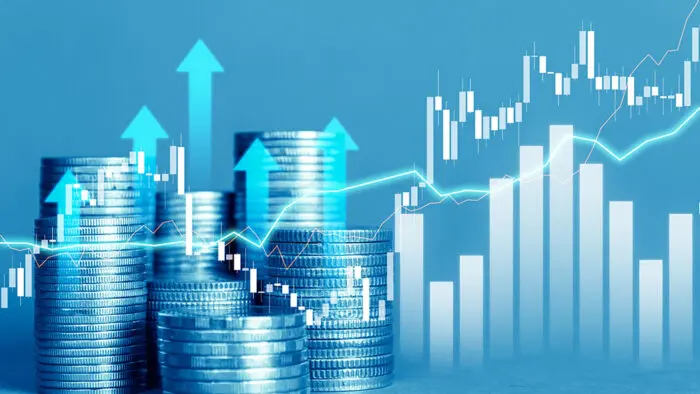


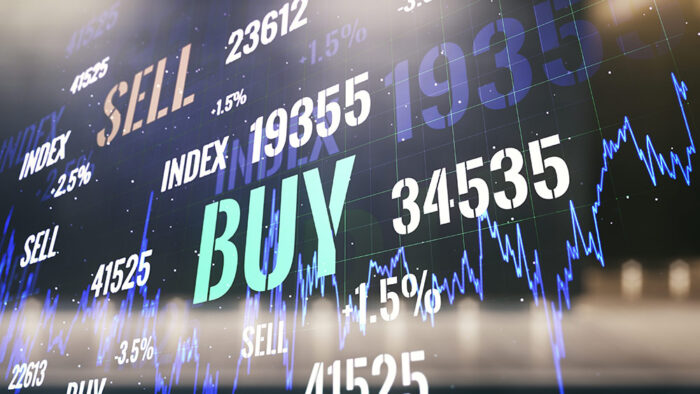

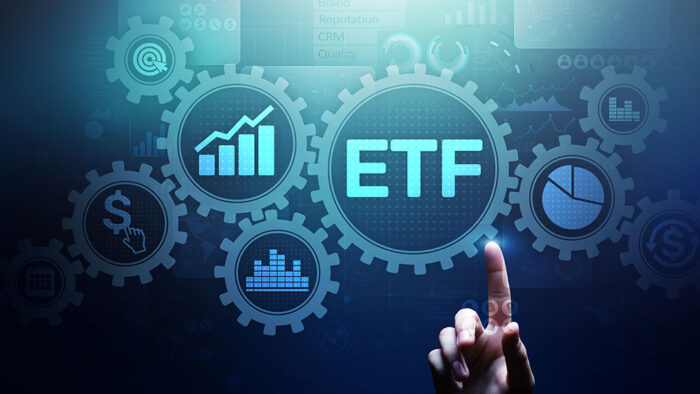

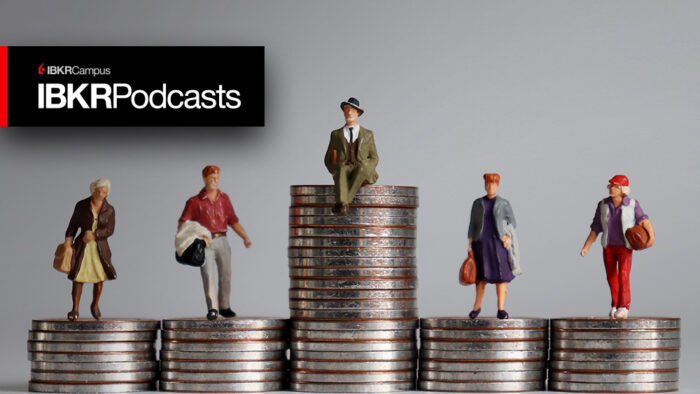

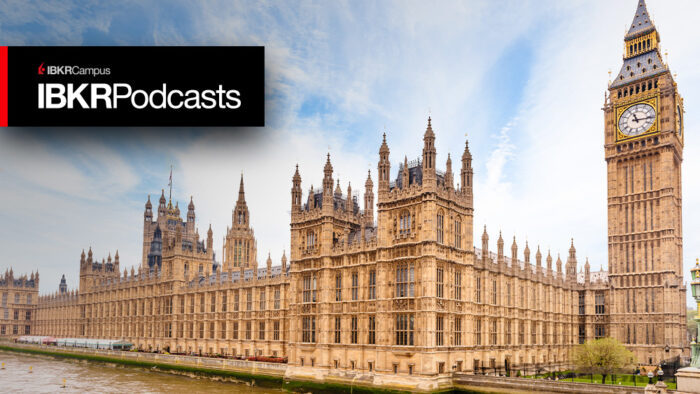










Join The Conversation
If you have a general question, it may already be covered in our FAQs. If you have an account-specific question or concern, please reach out to Client Services.